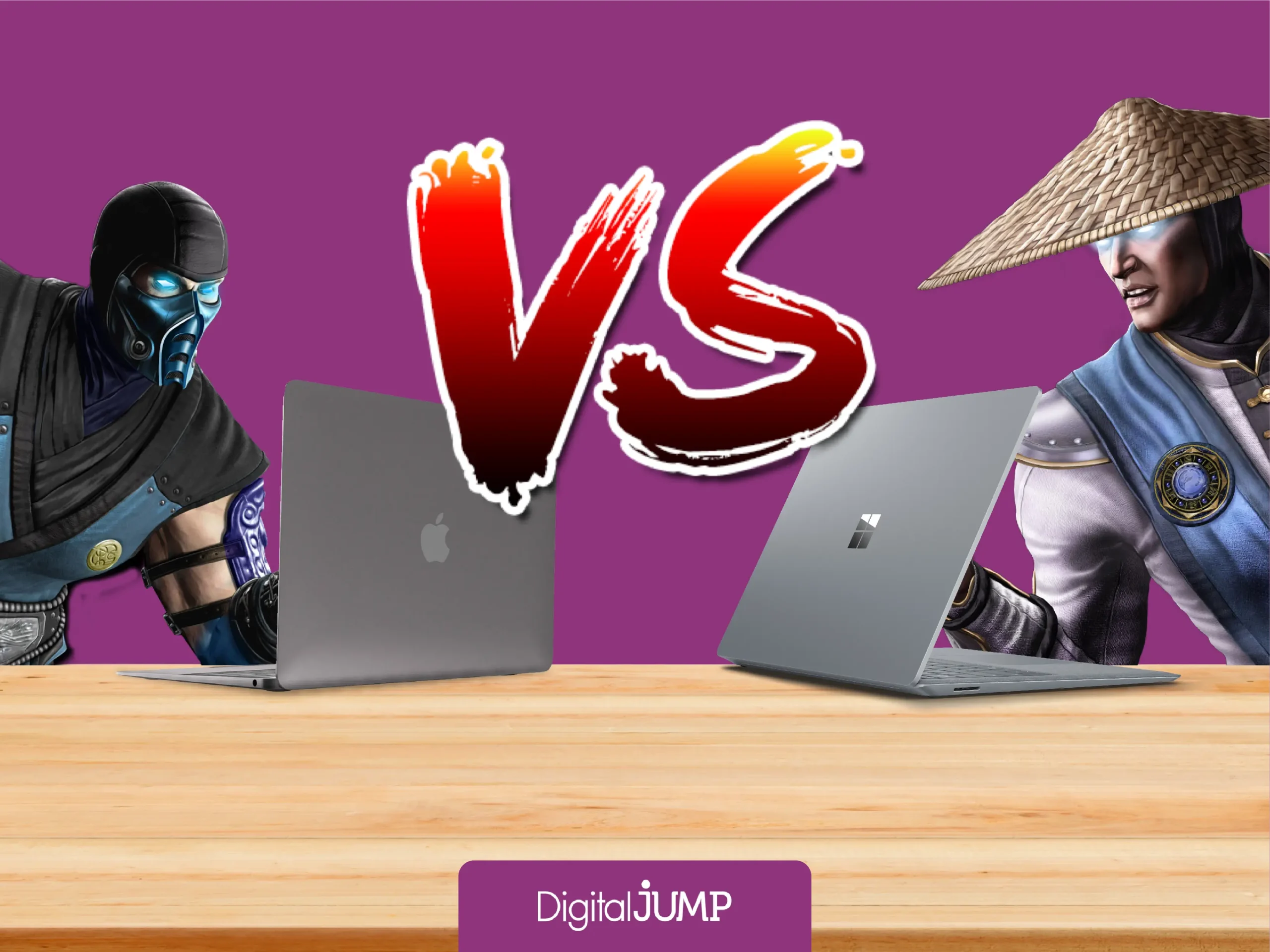Which teams will be better depending on the role?
The choice of PC type will depend on the specific role and the tasks associated with it. For example, a graphic designer will require a computer with a powerful graphics card, a high-resolution screen, and enough RAM to handle design programs such as Adobe Photoshop or Illustrator.
On the other hand, a web developer will need a machine with a good processor, ample storage space, and perhaps preferences toward specific operating systems that make programming easier.
SEO specialists or community managers could opt for teams more focused on multitasking and managing multiple tabs and applications simultaneously, without necessarily requiring hardware specifications as high as those of a designer or developer.
Even so, there is a curious preference among digital marketing professionals toward Apple MacBook Pro computers, which stand out for their high-quality screen, performance, portability, and long-lasting battery, ideal for video editing and graphic design tasks. Alternatively, others opt for competing equipment. In general, all these computers have the same “Windows” operating system as their header and what changes are the brands of the assemblers and the different components with which they are built. The technical specifications of Mac computers usually change depending on the model, so there is not much room for choice. However, Windows computers are enormously varied and range from the cheapest ones with the capacity to solve minimal tasks, to super powerful computers, generally dedicated to gaming.

Some of the devices most chosen by marketing specialists on this platform are the Microsoft Surface Laptop 4, which offers a large touch screen and an optimized user experience for creating and editing content. For those looking for a more affordable option without sacrificing performance, models such as Lenovo Ideapad, Xiaomi Mi Air, HP Pavilion or Acer Swift are mentioned as suitable and are usually chosen by these professionals.
Still, it’s important to consider that each role within a marketing agency may have unique needs, and therefore the ideal PC setup will vary. If we look at some other roles, such as a marketing manager, perhaps you might need a team that allows you to make presentations and analyze large sets of data. Perhaps, an expert in lead generation, requiring specialized software for email marketing campaigns and process automation, needs a different team. Therefore, when selecting a PC for a specific marketing role, it is crucial to evaluate the software demands required and how these align with the available hardware specifications.

Mac vs Microsoft users:
Choosing between one of these two platforms in marketing agencies is a topic of ongoing debate that focuses on the specific needs, preferences and budgets of each agency. Macs are known for their sleek design and intuitive interface, which has made them popular among creative professionals. On the other hand, Windows PCs offer greater customization and compatibility with a wide range of software, which can be advantageous for tasks such as data analysis and accounting, where programs like Excel outperform on the Microsoft platform. .
In terms of cost, Windows PCs tend to be more affordable initially, but Macs can offer better value for money in the long run due to their durability and reduced need for hardware replacement. However, repair costs can be higher for Macs, and Windows PCs provide a wider range of repair options and associated costs.

The security of the operating system is also an important factor; While both systems have improved their security features over the years, differences in each architecture can influence an agency’s decision. Additionally, integration with other devices and services is crucial, and this is where compatibility of products from the same brand, such as in the Apple ecosystem, can be a significant advantage.
Ultimately, the decision between Mac and Microsoft at a marketing agency will depend on a careful evaluation of how each platform aligns with the agency’s specific goals, team preferences, and existing infrastructure. It is essential to consider not only the initial cost, but also the total cost of ownership, which includes maintenance, software upgrades, and operational efficiency over time. The right choice can boost productivity and creativity, and help the agency stay competitive in a constantly evolving market.
Even so, there is a clear trend that the productive teams (designers, developers, editors) of an agency are the ones that opt most for a platform like Microsoft’s, due to the offer of powerful teams with a greater breadth of compatibility of software, is found in that ecosystem.
On the other hand, teams that are in charge of softer management (Customer Success, Paid media, etc.) usually choose teams that have a better balance between performance and power and the Mac platform is the favorite choice.
Coincidentally, at Digital JUMP, our developer (Hernán) and our designer (Mariano) are the ones who staunchly choose the Windows platform and defend it staunchly. Could it be a coincidence?
And for you, what is the best platform? Mac or Windows? You can share your opinion with us or give us feedback with what you think about the topic.


